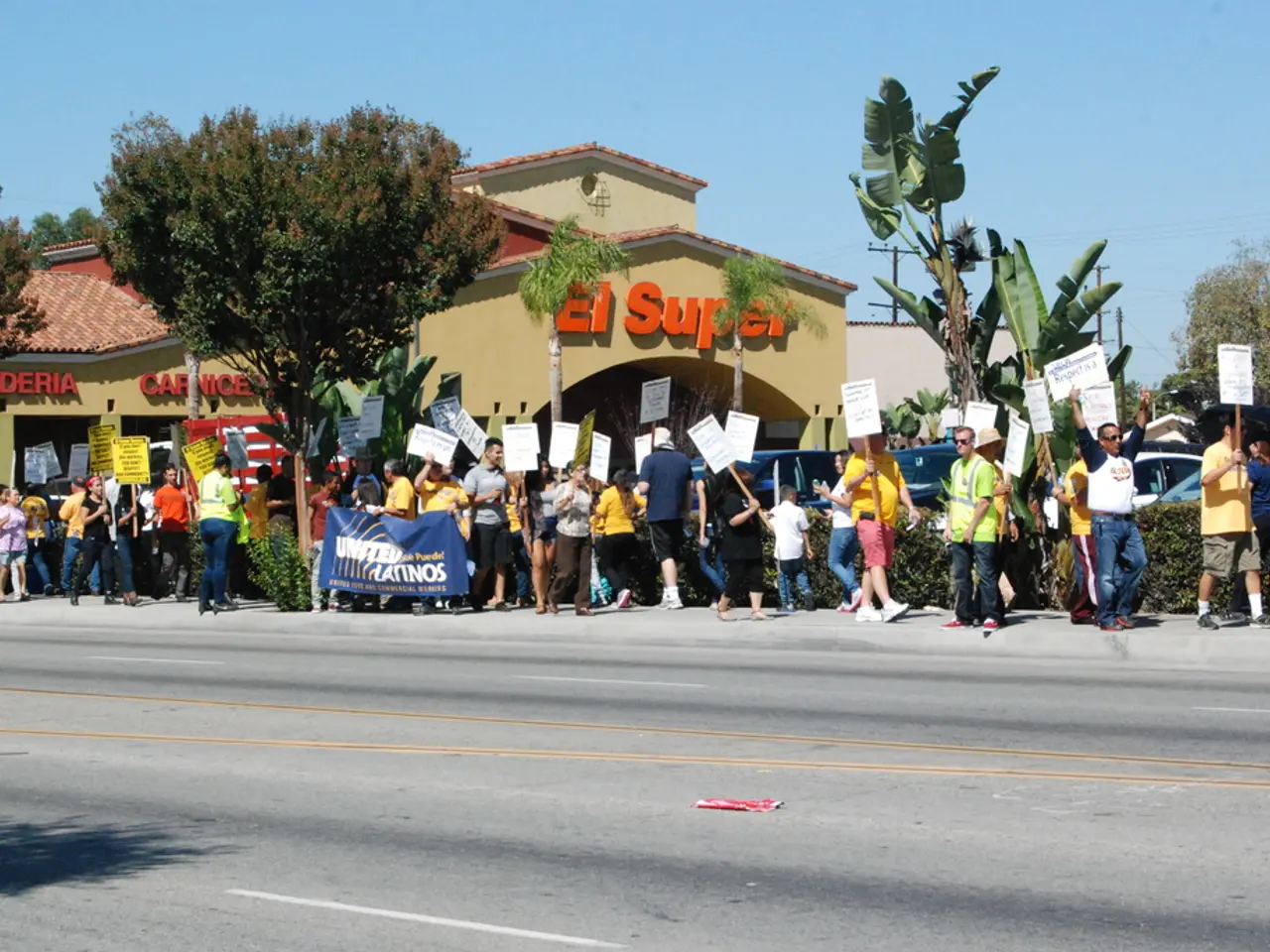Competitive Struggle for Political Power: The Various Strategies Employed by Parties During Election Campaigns
In the dynamic world of politics, electoral campaigns play a crucial role in shaping the political landscape. These campaigns involve various activities aimed at winning elections, from candidate selection to get-out-the-vote (GOTV) efforts.
At the heart of these elections are two main approaches: national and local. National campaigns focus on broad themes and policy priorities, while local campaigns address localized concerns and leverage community connections to win support. Grassroots campaigns, a type of local campaign, emphasize localized engagement, community outreach, and personal connections with voters. These campaigns focus on mobilizing support at the local level, engaging with communities, and building networks of volunteers and activists to drive electoral success.
Political parties employ a variety of strategies to persuade voters. This includes positive campaigning, where the party highlights its strengths and achievements, comparative campaigning, which involves comparing the party with its opponents, and negative campaigning, where the party attacks opponents, criticizes their policies, and highlights their perceived weaknesses or vulnerabilities.
Digital campaigns have become an integral part of modern electoral strategies. These campaigns leverage online platforms and social media channels to reach a broader audience, engage with voters, and disseminate campaign messaging. Debates and forums offer opportunities to contrast a party's vision with their opponents, provide platforms for candidates to articulate their positions, and engage in dialogue with opponents.
Issue-based campaigns promote specific policy initiatives, causes, or social issues that align with the party's platform and values. GOTV campaigns, on the other hand, aim to increase voter turnout and ensure that supporters cast their ballots on election day.
In recent elections, such as those in Germany, the use of campaign funding has been under scrutiny. The AfD (Alternative for Germany) received significant company donations, including a large multi-million euro donation from a Lübeck doctor and alleged funds funneled by billionaire Henning Conle. However, some donations were deemed unlawful and are under legal scrutiny.
Political parties also use rallies, public events, and mass media advertising to reach voters and influence public opinion. Debates and forums provide candidates with opportunities to showcase their knowledge, leadership qualities, and policy expertise.
In conclusion, electoral campaigns are complex undertakings that require a combination of strategic planning, community engagement, and effective communication. Understanding these strategies can help voters make informed decisions during elections.
Read also:
- United States tariffs pose a threat to India, necessitating the recruitment of adept negotiators or strategists, similar to those who had influenced Trump's decisions.
- Weekly happenings in the German Federal Parliament (Bundestag)
- Southwest region's most popular posts, accompanied by an inquiry:
- Discussion between Putin and Trump in Alaska could potentially overshadow Ukraine's concerns








